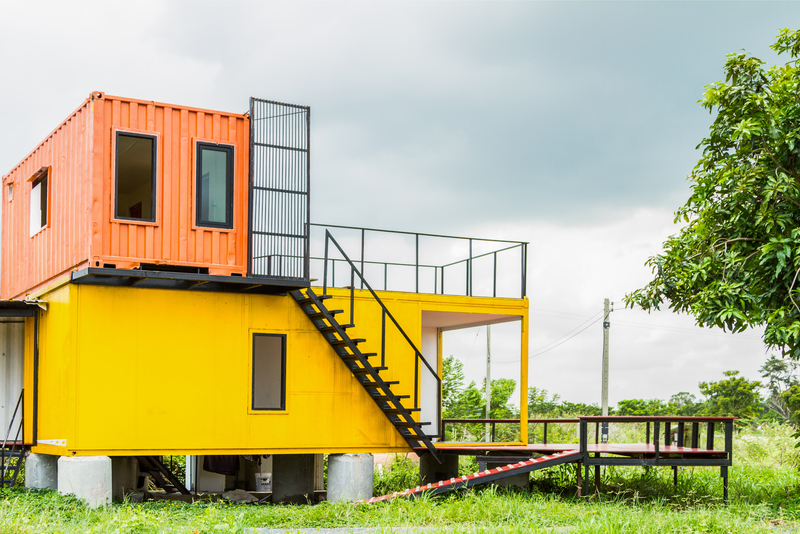Innovative Money-Saving Methods for Bulky Item Disposal
Every homeowner and business inevitably faces the daunting task of getting rid of unwanted large items, such as old furniture, appliances, mattresses, or extensive yard debris. Traditional disposal methods can be expensive and environmentally unfriendly. Luckily, adopting innovative money-saving methods for bulky item disposal not only keeps your wallet happy but can also benefit the planet.
Why Cost-Effective Bulky Item Disposal Is Important
Bulky item removal poses unique challenges, from logistics and labor to environmental concerns. Without proper planning, costs can quickly escalate, and your items could end up in landfills. By implementing innovative and cost-effective methods for bulky waste removal, individuals and organizations can:
- Reduce landfill waste
- Lower disposal costs
- Promote sustainability and recycling
- Help those in need
- Maximize resource recovery

Top Innovative Ways to Save Money on Bulky Item Disposal
1. Repurpose, Reuse, or Upcycle Bulky Items
Before tossing large furniture or equipment, consider whether it can be reused or repurposed. Old dressers become creative bookshelves, while used wooden pallets transform into trendy outdoor furniture. Upcycling is not just a trend -- it's a sustainable, budget-friendly approach to disposing of bulky items.
- Refurbish furniture for personal use or gifts
- Convert broken appliances into planters or unique decor
- Use old doors or windows for creative DIY projects
2. Donate Items to Charity or Non-Profit Organizations
Many non-profits accept gently used bulky items. Not only does donating help those in need, but it can also be a free or low-cost disposal option. Some organizations even offer free pickup services, saving you time and transportation costs.
- Contact local charities like The Salvation Army or Habitat for Humanity
- Search for organizations specializing in specific items, such as furniture banks
- Utilize online platforms that connect donors with local charities
3. Sell or Give Away Large Items Online
Why pay to dispose of bulky items when you might be able to sell them for extra cash? Online marketplaces and community groups are excellent platforms for economical bulky item disposal. Some popular places to list or give away your items include:
- Facebook Marketplace
- Craigslist
- Nextdoor
- Freecycle
4. Schedule Municipal Bulk Pickup
Most cities and towns offer scheduled bulky item collection services for residents, either free or at a reduced rate compared to hiring a junk removal business. To use this cost-saving method:
- Check your city's waste management website for details
- Schedule pickups in advance (many limit how often you can request this service)
- Follow preparation guidelines to avoid fines or rejected pickups
5. Participate in Community Clean-Up Events
Many municipalities and neighborhoods organize community clean-up days where residents can dispose of bulky items at no charge or a substantially reduced fee. Take advantage of these events by:
- Staying informed with local community bulletins
- Coordinating with neighbors to rent a dumpster or organize a bulk item drop-off together
- Collecting and disposing of multiple items at once to save time and resources
6. Arrange Shared Disposal Services
Pooling resources with neighbors or friends to rent a dumpster or hire a junk removal service together can dramatically lower costs per household. This innovative money-saving method for bulky item disposal works best when:
- Several households have bulky items for disposal simultaneously
- You split both rental and transportation fees
- Everyone clearly communicates what items are included
7. Find Local Scrap Metal and Recycling Facilities
For appliances, electronics, or items that contain metal, scrap yards and local recycling centers can be a cost-efficient option -- sometimes they'll even pay you for recyclable materials. Steps to maximize this approach:
- Research local facilities that accept large items
- Separate out materials for higher value (e.g., copper, aluminum)
- Transport items yourself to avoid pickup fees
8. Leverage Retailer Haul-Away Programs
Major retailers like Best Buy, Lowe's, and appliance stores often offer haul-away services when you purchase a new product. Sometimes the bulk item removal is free, included with the purchase, or offered for a small additional fee, which is cheaper than independent removal services. Tips:
- Ask about old appliance pickup when making a new purchase
- Check for manufacturer recycling or trade-in programs
- Combine delivery and haul-away to maximize savings
9. DIY Transport to Waste Facilities
If you have access to a truck or trailer, consider self-hauling bulky items to your local landfill or recycling center. Most facilities charge lower fees to individuals who deliver items themselves. This approach can be especially economical for large, heavy items if:
- You have multiple items to dispose of at once
- Local disposal rates are reasonable
- You follow municipal regulations regarding hazardous materials
10. Explore Bulk Waste Brokers and Aggregators
Several companies specialize in connecting people with the most cost-efficient bulk waste disposal services. These innovative platforms compare prices and negotiate on your behalf, offering:
- Discounted group rates
- Transparent pricing
- Flexible scheduling
How to Choose the Best Money-Saving Bulk Item Disposal Solution
The ideal disposal method depends on your situation. To select the most cost-effective bulky waste disposal option, consider:
- The type, quantity, and condition of your items
- Availability of municipal or community services
- Your budget and time constraints
- Environmental considerations and recycling goals
Common Mistakes to Avoid in Bulky Item Disposal
While saving money is essential, improper disposal can incur fines, create hazards, or harm the environment. Watch out for these common pitfalls:
- Illegal dumping or fly-tipping: This can result in steep penalties.
- Ignoring recycling opportunities: Many parts of large items can be repurposed or recycled.
- Poor preparation: Failing to prepare items for pickup (e.g., removing doors from appliances) can cause rejections or extra fees.
- Lack of research: Not comparing service rates or exploring free options can mean overpaying by hundreds of dollars.
Environmental Benefits of Modern Bulky Item Disposal Methods
Adopting innovative, cost-saving bulk waste removal strategies isn't just smart for your budget -- it's also the right choice for the environment. Here are just a few positive impacts:
- Reduced landfill use: Upcycling, recycling, and donating keep materials out of the waste stream.
- Conservation of resources: Recovering metals, wood, and fabrics saves raw materials and energy.
- Lower transportation emissions: Sharing disposal with neighbors or using community events minimizes vehicle trips.
- Support for the circular economy: Giving items a second life fosters local economies and sustainable practices.

Frequently Asked Questions About Bulky Item Disposal
Q1: What items are considered 'bulky waste'?
A: Bulky waste typically includes items too large for regular curbside bins -- for example, furniture, mattresses, white goods (appliances), electronics, tires, and sizable yard debris.
Q2: How often can I use city-sponsored bulky waste pickup?
A: This depends on your municipality. Some offer monthly collection, others quarterly -- always check with your local waste authority for details.
Q3: Are bulky item disposal fees tax-deductible if I donate?
A: In most cases, donations to qualified charities can be claimed as a deduction; keep receipts and consult a tax professional.
Q4: What's the cheapest way to dispose of a large sofa or mattress?
A: The most affordable options are selling, giving away, or donating if the item is in good condition; otherwise, use municipal or community events for free or low-cost pickup.
Q5: What should I do with broken appliances?
A: Contact local recycling centers or scrap metal buyers. Many retailers offer free haul-away when delivering new units. Never leave appliances on the curb without first confirming local regulations -- improper disposal can lead to hazards and fines.
Conclusion: Make Bulky Item Disposal Cheaper and Greener
Disposing of large, unwanted items doesn't have to be expensive or harmful to the environment. By embracing innovative money-saving methods for bulky item disposal, you save cash, contribute positively to your community, and promote sustainability. Whether through recycling, donating, selling, or collaborating with neighbors, there's a savvy, budget-friendly solution for any situation.
Whatever approach you choose, remember to research local guidelines, plan ahead, and always prioritize reuse or recycling. With these strategies, you'll handle bulky waste efficiently, ethically, and -- best of all -- economically.
- Repurpose or upcycle before you trash it
- Donate, sell, or give away usable items
- Leverage municipal and community resources
- Recycle metals, mattresses, and electronics properly
- Pool resources with neighbors for maximum savings
Embrace these cost-effective, innovative strategies for bulky item disposal and make your next decluttering project a win for your wallet and the world.
